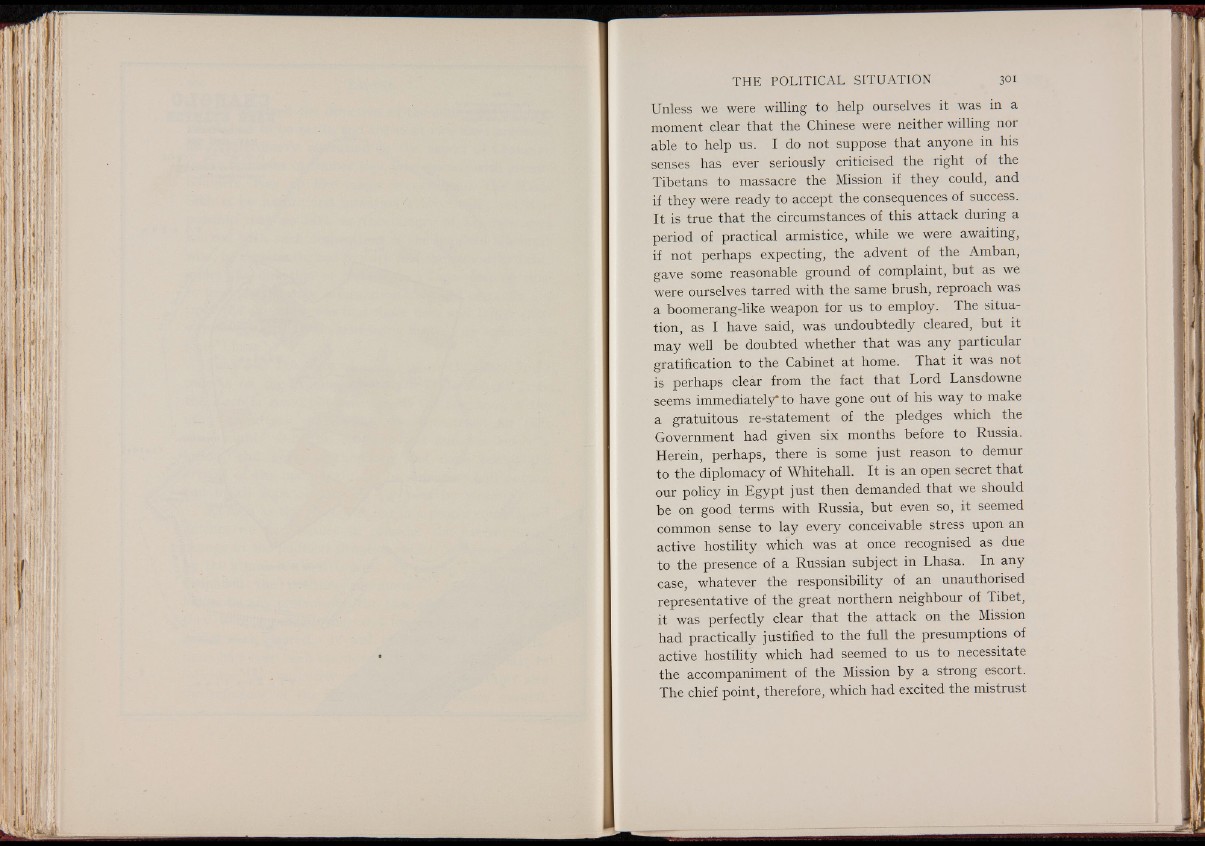
Iff
I f
I
iini
I ! a’li
Wit1«
11
l i
ij
1 1
III 14
Unless we were willing to help ourselves it was in a
moment clear that the Chinese were neither willing nor
able to help us. I do not suppose that anyone in his
senses has ever seriously criticised the right of the
Tibetans to massacre the Mission if they could, and
if they were ready to accept the consequences of success.
It is true that the circumstances of this attack during a
period of practical armistice, while we were awaiting,
if not perhaps expecting, the advent of the Amban,
gave some reasonable ground of complaint, but as we
were ourselves tarred with the same brush, reproach was
a boomerang-like weapon for us to employ. The situation,
as I have said, was undoubtedly cleared, but it
may well be doubted whether that was any particular
gratification to the Cabinet at home. That it was not
is perhaps clear from the fact that Lord Lansdowne
seems immediately* to have gone out of his way to make
a gratuitous re-statement of the pledges which the
Government had given six months before to Russia.
Herein, perhaps, there is some just reason to demur
to the diplomacy of Whitehall. It is an open secret that
our policy in Egypt just then demanded that we should
be on good terms with Russia, but even so, it seemed
common sense to lay every conceivable stress upon an
active hostility which was at once recognised as due
to the presence of a Russian subject in Lhasa. In any
case, whatever the responsibility of an unauthorised
representative of the great northern neighbour of Tibet,
it was perfectly clear that the attack on the Mission
had practically justified to the full the presumptions of
active hostility which had seemed to us to necessitate
the accompaniment of the Mission by a strong escort.
The chief point, therefore, which had excited the mistrust